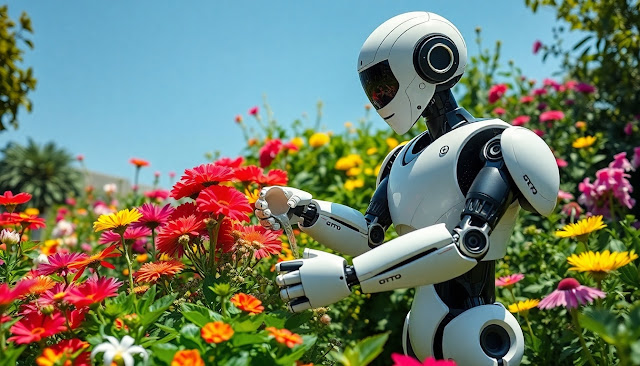In a groundbreaking development set to be showcased at the upcoming Chelsea Flower Show, gardens may soon be able to communicate with their caretakers through artificial intelligence. This innovative technology will allow plants to express their needs, such as requesting water or indicating their overall health, revolutionising the way we interact with our green spaces.
Key Takeaways
AI technology will enable gardens to communicate their needs to gardeners.
The project will be unveiled at the Chelsea Flower Show next year.
Sensors will monitor soil conditions and relay information to a computer.
The initiative aims to promote water conservation and efficient gardening practices.
The Concept Behind Talking Gardens
The idea of talking to plants is not new; many believe that verbal interaction can enhance plant growth. King Charles, a passionate horticulturist, has long advocated for this practice, stating that plants respond positively to conversation. This new AI technology aims to take this concept a step further by allowing plants to 'talk' back.

Tom Massey, the designer behind the Avanade garden, explained that the garden will be equipped with sensors that monitor various soil conditions, including moisture levels, nutrient content, and pH balance. These sensors will communicate with a computer located in a pavilion at the back of the garden, providing real-time feedback to gardeners.
How It Works
Sensors: Wireless sensors will be buried in the soil to track moisture, nutrients, and acidity.
Communication: The sensors will relay information to a computer, which will process the data and provide actionable insights.
User Interaction: Gardeners will be able to interact with the garden through a dedicated app, asking questions like:
"How are you feeling?"
"What do you need?"
"Do you need watering?"
The AI could respond with suggestions such as, "I need a bit more water, or perhaps a trim." This interaction aims to make gardening more efficient and enjoyable.
Benefits of AI in Gardening
The integration of AI into gardening practices offers several advantages:
Water Conservation: By only watering when necessary, significant water savings can be achieved, especially in large developments.
Reduced Labour: Gardeners can spend less time on routine tasks, allowing them to focus on more creative aspects of gardening.
Enhanced Plant Health: Real-time monitoring can lead to better care and healthier plants.
Future Innovations: The technology could pave the way for advanced features, such as pest detection and automated maintenance systems like robotic lawnmowers.
The Future of Gardening
As we look ahead, the potential for AI in gardening is vast. The Royal Horticultural Society has already developed an AI app called ChatBotanist, which provides gardening advice. The upcoming Chelsea Flower Show will serve as a platform to showcase how AI can transform our relationship with nature, making gardening more accessible and efficient.
In conclusion, the prospect of gardens that can communicate their needs marks a significant leap forward in horticultural technology. As we embrace these innovations, we may find that our gardens not only thrive but also become more interactive companions in our lives.
Sources
Gardens could soon 'speak' to humans using AI to ask for water and say how they are feeling | Daily Mail Online, Daily Mail.
Gardens could soon 'speak' to humans using AI to ask for water and say how they are feeling | Daily Mail Online, Daily Mail.
How Gardens could soon 'speak' to humans using AI to ask for water, MSN.


